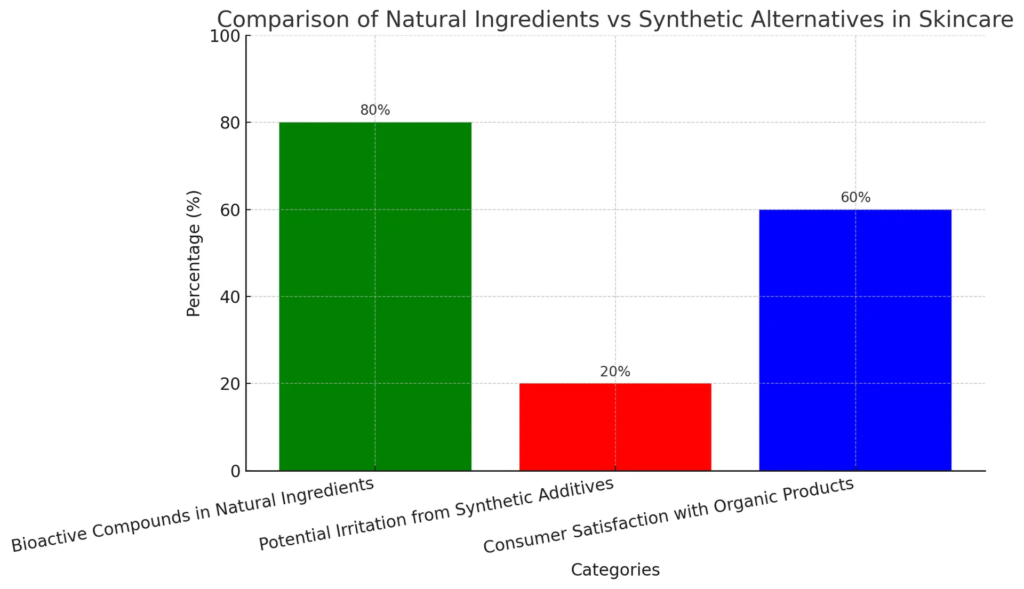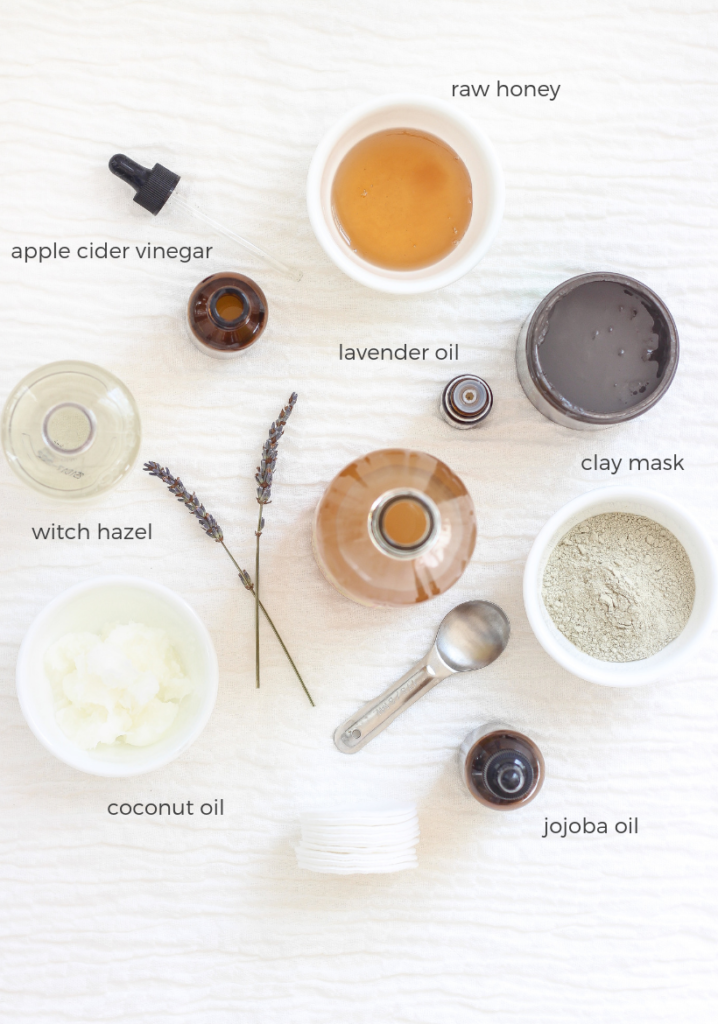Crafting the Perfect Organic Skincare Routine
In recent years, the organic skincare movement has gained tremendous traction, driven by a growing consumer awareness surrounding health, sustainability, and ethical consumption practices. This shift is not merely a trend; it reflects a fundamental re-evaluation of what constitutes effective skincare, particularly in light of environmental concerns and the desire for natural ingredients. As consumers become increasingly discerning, the market has responded by offering products that promise efficacy without harmful chemicals or synthetic additives. Research indicates that marketers play a pivotal role in connecting consumers to these products through messages that resonate with their values, as seen during the COVID-19 pandemic, which further emphasized priorities around health and hygiene (Chen et al.). By carefully crafting a skincare routine with organic elements, individuals can not only nurture their skin but also contribute positively to the broader ecosystem. Visual representations of natural ingredients, such as those in , enhance understanding of the accessible nature of these components in routine formulation.
| Ingredient | Benefit | PercentageUse | SourceType |
| Aloe Vera | Hydration | 78 | Plant |
| Jojoba Oil | Moisturizing | 65 | Plant |
| Vitamin C | Brightening | 82 | Fruit |
| Green Tea Extract | Antioxidant | 71 | Plant |
| Hyaluronic Acid | Hydration | 89 | Fermentation |
A. Importance of organic skincare in modern beauty practices
The rising significance of organic skincare in contemporary beauty practices stems from a growing consumer awareness about the ingredients present in cosmetic products. As individuals increasingly seek transparency and natural formulations, organic skincare emerges as a favorable choice that aligns with health-conscious lifestyles. This shift is especially pronounced in markets like China, where consumers are developing a keen understanding of the perceived risks associated with skincare products, such as performance and psychological implications ((Yifan et al.)). Similarly, in the Middle East, consumers demonstrate a preference for products that reflect social media trends and promote ingredient transparency, reinforcing the need for brands to adapt accordingly ((LAWATI et al.)). The emphasis on natural ingredients, exemplified by the diverse array depicted in , not only signifies a departure from synthetic formulations but also highlights the demand for efficacy and sustainability in skincare. Thus, integrating organic principles into modern beauty practices is pivotal in establishing consumer trust and loyalty.
II. Understanding Skin Types
To craft an effective organic skincare routine, it is imperative to begin with a comprehensive understanding of skin types. Human skin can be categorized into five primary types: normal, oily, dry, combination, and sensitive. Each skin type possesses distinct characteristics that influence how it reacts to various products and environmental factors. For instance, individuals with oily skin may benefit from non-comedogenic ingredients that prevent clogged pores, while those with dry skin should seek out highly moisturizing formulations rich in emollients. Furthermore, recognizing the historical context behind consumer preferences in skincare can shed light on current market trends, as seen in the Chinese skincare industrys resilience during the COVID-19 pandemic, where social values shifted towards health and hygiene (Chen et al.). Incorporating natural ingredients, as depicted in , can enhance the effectiveness of an organic regime by catering specifically to the unique needs of each skin type. Understanding these dynamics is essential for achieving optimal skin health.
A. Identifying your skin type for tailored organic products
Understanding ones skin type is a crucial step in formulating an effective organic skincare routine, as it directly influences the selection of suitable products. Different skin types—normal, oily, dry, combination, and sensitive—react uniquely to various organic ingredients, necessitating a tailored approach for optimal results. For example, individuals with oily skin may benefit from lightweight formulations that incorporate non-comedogenic ingredients, while those with dry skin might require richer, hydrating elements like coconut oil or jojoba oil that provide essential moisture. As discussed in recent research on organic brand perceptions, consumers increasingly co-construct their understanding of skincare through online communities, highlighting the importance of shared experiences in identifying effective products ((Danbury et al.)). Additionally, brands like myClarins cater specifically to the needs of younger demographics, illustrating the role of targeted marketing in enhancing product relevance ((Pinto et al.)). To further augment this analysis, the inclusion of , showcasing an array of organic ingredients, visually emphasizes the natural components that align with diverse skin types, reinforcing the importance of personalization in skincare.
III. Key Ingredients in Organic Skincare
An effective organic skincare routine is rooted in the selection of key ingredients that provide both nourishment and protection for the skin. Natural components such as raw honey and lavender oil exemplify the dual advantage of being both soothing and antibacterial, making them essential in formulations meant for sensitive or acne-prone skin. Additionally, witch hazel serves as a natural astringent, assisting in the minimization of pores and the control of oil production, while coconut oil provides deep hydration and serves as an excellent moisturizer. Incorporating these ingredients into a skincare regimen can address various skin concerns, thus customizing the routine to individual needs. The visual representation of these ingredients, as seen in , illustrates their natural forms and highlights their sensory appeal. By understanding the roles of these ingredients, consumers can make informed choices that align with their skincare goals, culminating in the crafting of the perfect organic skincare routine (Frutuoso et al.), (Sinicropi et al.).
A. Benefits of natural ingredients versus synthetic alternatives
In the discourse surrounding skincare, the comparison between natural ingredients and synthetic alternatives reveals significant benefits that can enhance the formulation of an organic skincare routine. Natural ingredients often boast bioactive compounds that contribute to skin health without the potential irritation linked to synthetic additives. For instance, neurocosmetic ingredients derived from plant extracts have demonstrated efficacy in combating skin stress and aging by interacting positively with the skins neuromediators, as highlighted in the burgeoning field of neurocosmetics (Cosma et al.). Furthermore, a study on the skincare preferences of Portuguese women suggested that although organic product attributes do not overwhelmingly determine brand loyalty, they play a role in consumer satisfaction and trust when positioned effectively within the market (Oliveira et al.). Thus, leveraging the properties of natural ingredients not only enhances product appeal but also aligns with a growing consumer consciousness towards skincare that prioritizes health and well-being.
crafting an effective organic skincare routine necessitates a discerning approach that considers both individual skin needs and the cultural contexts influencing consumer choices. As explored throughout this essay, the resilience of the skincare market, even amidst challenges such as the COVID-19 pandemic, underscores the importance of integrating historical and social dynamics into product selection and marketing strategies. Marketers play a pivotal role in shaping consumer preferences, establishing connections that transcend mere product functionality to evoke deeper societal values surrounding beauty and wellness (Chen et al.). Furthermore, embracing the natural ingredients depicted in allows consumers to engage actively in their skincare practices, fostering an intimate relationship with their products. Ultimately, this holistic understanding promotes not only healthier skin but also encourages a mindful and informed consumer culture that prioritizes sustainability and self-care above all.
A. The long-term advantages of maintaining an organic skincare routine
The long-term advantages of adhering to an organic skincare routine extend far beyond superficial benefits, incorporating improvements in skin health and environmental sustainability. Regular use of organic products, which are composed of natural ingredients free from harmful chemicals, helps to maintain the skins integrity over time, reducing the risks of irritation and allergic reactions often associated with synthetic counterparts. As noted in (Chen et al.), consumer demand for such natural products has remained resilient, further driving the market towards health-conscious choices during challenging times like the COVID-19 pandemic. This sustained interest highlights a societal shift towards valuing personal well-being and ecological mindfulness. Furthermore, the effective visual representation of organic ingredients, as seen in , underscores the diverse benefits they offer, enabling consumers to cultivate an informed and holistic approach to skincare. Ultimately, an organic routine fosters lasting connections between consumers and their bodies, promoting both health and environmental wellness.







